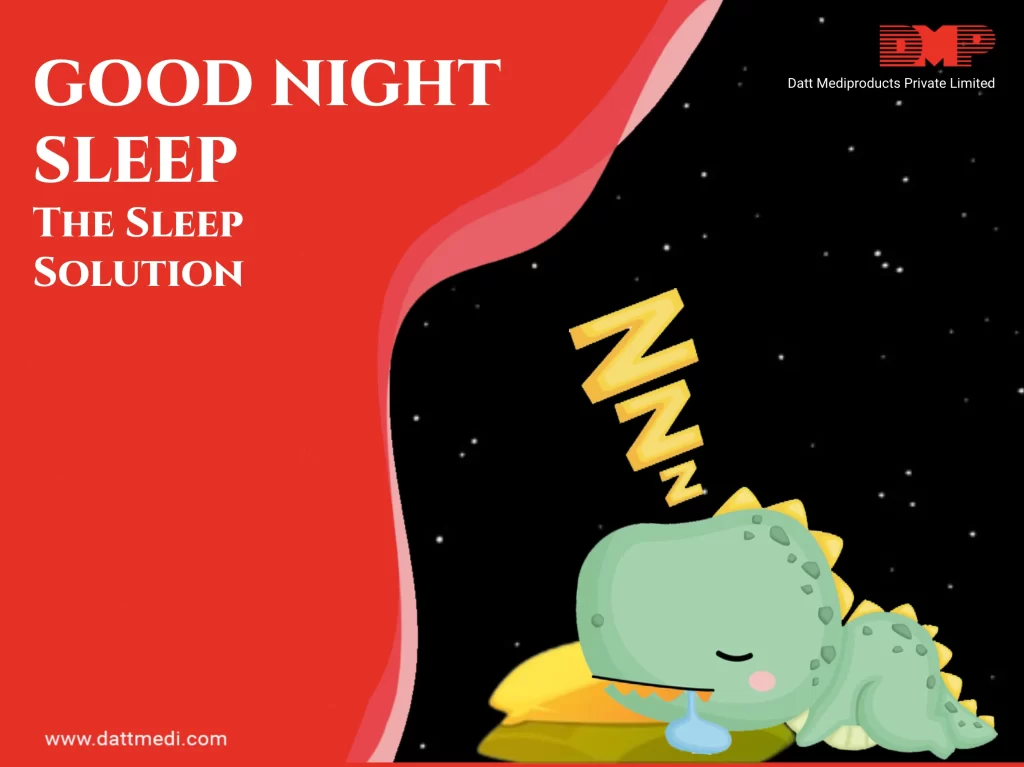
Sleep is an inevitable part of human lives. A good night’s sleep is necessary for optimal health. It can affect our hormone levels, mood, weight gain, and even wound recovery. “How sleep impacts your mind and wound healing” has been described in our previous blog.
In this blog, we are going to share some really simple tips to beat insomnia and get a good night’s sleep for a productive and energetic following day.
1. Regularize Your Sleep Hours: Make a sleep schedule and stick to it. Doctors recommend to try and get sound sleep of at least 7-8 hours. Try to go to bed at the same time everyday to programme your body to sleep better. Your body will automatically reinforce a sleep-wake up cycle.
2. Do not Keep Lying: If you don’t sleep within 20 minutes of lying on the bed, leave the bed and do something peaceful and relaxing, whether it’s listening to good music or reading a good book.
3. Create a Restful/ Peaceful Environment: Your bedroom’s environment should be ideal for sleeping. It should be dark, cool and quiet. Choose what suits your needs and calms you. Temperature and lightning should be such which help you to fall asleep. Make sure your bed is clean and comfortable. It should leave enough room for you to stretch and turn comfortably. If you are waking with an ache in your neck or sore back, it means it’s time for a new mattress or pillows.
4. Exercise is important: Including regular physical activity in your daily routine helps promote better sleep.
5. Limit Daytime Naps: Napping for long hours during daytime may interfere with nighttime sleep. If you wish to do so, limit it to 20-30 minutes and avoid it during late hours of the day.
6. Relax before going to bed: Calming activities and relaxation techniques such as taking bath might promote sound sleep.
7. Make a sleeping ritual: Lie on your back, close your eyes, relax and do some breathing exercises for about 2 minutes. Give a quick body scan to identify the area where you are holding any stress or tension and try to release it. Pay close attention to that area and imagine each breath flowing to that area. Stay focussed in that area for 3-5 seconds, and relax.
8. Clear up your head: Don’t go to bed with worries in your head. Try to manage your worries and resolve your concerns before sleep time. Make tomorrow’s plan well in advance and set them aside. Set your priorities, be organized and delegate tasks. Indulge in some stress management techniques such as meditation, yoga etc.and ease your anxiety.
9. Pay Attention to what you Eat & Drink: What you eat during the daytime affects your sleeping habits in direct proportions. Limit caffeine, nicotine, alcohol, sugary foods and refined carbs as these can disrupt your sleep. Their overindulgence can interfere with your sleep cycle, cause stomach troubles, heartburns, increase your bathroom trips and trigger wakefulness at night.
Apart from these, avoid exposure to light-emitting screens just before bedtime. Try not to work, watch TV or use any electronic gadget in bed. Make your bed and bedside a gadget free environment, this will help you to not use your device at night and it will make it easier to wind down at night. If you don’t know how many hours of sleep your body requires then pay attention how many hours your are getting next time you are on holiday.
Your body will body will tell you how much sleep it needs to feel refreshed and energised. Experiment with these noteworthy tips from @dattmediproducts for a better sleep at night, nurture your health and uplift your mood and feelings the next day.







